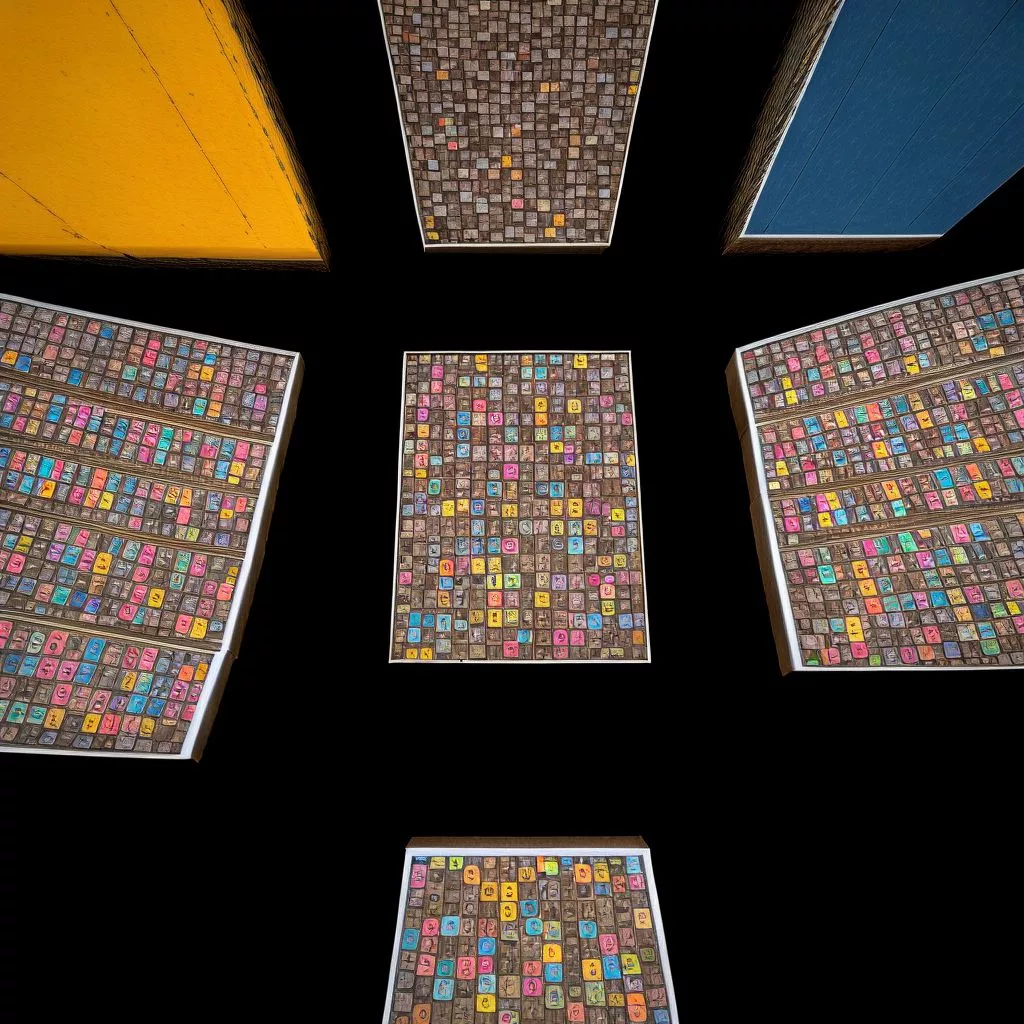The CAPS curriculum is like a strict school rulebook that focuses on memorizing facts instead of sparking creativity and critical thinking. This can make it hard for kids to gain the skills they’ll need in a future filled with robots and new technology. A father, Gasant Abarder, worries that even though his talented daughter does great in school, traditional learning might not be enough for her to succeed in a changing world. To help kids prepare, parents and teachers must look beyond the classroom and encourage fun activities that inspire imagination and problem-solving. By doing this, we can help children grow into confident creators and thinkers ready to face whatever comes next.
How does the CAPS curriculum impact children’s preparedness for the future?
The CAPS curriculum, while structured, primarily emphasizes memorization over creativity and critical thinking. This limits children’s ability to develop essential skills needed for future job markets shaped by technology and AI. Supplementing education with real-world experiences is crucial for fostering innovation and adaptability.
Examining the Adequacy of the CAPS Curriculum
In today’s rapidly changing world, the question of whether our current education system can adequately prepare children for the future is more pressing than ever. In South Africa, the CAPS (Curriculum and Assessment Policy Statement) curriculum aims to offer a comprehensive educational foundation. However, as Gasant Abarder’s reflections in his #SliceofGasant column suggest, many parents are increasingly skeptical about its efficacy in equipping students for an unpredictable future. The debate centers around whether traditional education methods can keep pace with technological advancements and the evolving job market.
Abarder shares a personal story about his 7-year-old daughter, a Grade 2 student who excels in both academics and athletics. Her report card is filled with top marks and commendations from her teacher. She has a strong grasp of math, demonstrates excellent language skills in English and Afrikaans, and reads well beyond her years. Additionally, she is successful in rhythmic gymnastics and even helps her grandmother with technology issues. This bright young girl exemplifies the potential of Gen Alpha, the generation born from 2010 onwards.
Despite her impressive achievements, Abarder voices a significant concern: will traditional education methods such as mastering times tables or memorizing stories suffice in a future dominated by technology and artificial intelligence? By the year 2040, AI advancements are expected to have drastically altered the job market, rendering many current roles obsolete. This raises critical questions about a system that prioritizes rote memorization over fostering creativity and critical thinking skills.
The Shortcomings of a Results-Driven System
The CAPS curriculum’s focus on memorization and recall often leaves little room for children who think outside the conventional academic box. While subjects like math and science are emphasized, courses in the arts, technical skills, and life skills are frequently treated as secondary. This oversight is particularly glaring in an era where creativity and innovation are highly valued. Moreover, the lack of emphasis on critical thinking is troubling. The curriculum is designed to be results-driven, with assessments starting almost immediately as the term begins, thereby limiting opportunities for genuine intellectual exploration.
Each child is a unique learner with distinct strengths and weaknesses. While some excel in traditional academics, others might shine in creative or technical domains. Unfortunately, the current education system doesn’t adequately accommodate these differences. Reflecting on his own schooling in 1985, Abarder notes that labels like ADHD were unheard of, and children were simply allowed to be themselves—energetic, curious, and occasionally inattentive. Today, the academic pressure on children is immense, with homework assignments eating into time that could be spent playing, socializing, and exploring—activities that are essential for holistic development.
By the time Abarder’s daughter graduates, she will need to be a creator, innovator, or inventor to thrive in the workforce. The rapid automation of jobs by AI means that traditional roles will be replaced by new ones, requiring skills that the current curriculum does not adequately foster. This shift underscores the need for an education system that goes beyond rote learning to develop critical thinking and problem-solving skills.
Supplementing Education with Real-World Experiences
Parents face the challenge of supplementing formal education with experiences that cultivate critical thinking and creativity. This involves encouraging children to engage in stimulating conversations, read diverse materials, and stay informed about current events. Exposure to various topics and ideas helps children develop a well-rounded perspective and the ability to think critically about the world around them. Additionally, it is crucial for parents to avoid imposing their unfulfilled ambitions on their children. Each child should have the freedom to pursue their own interests and strengths, rather than being pressured into following a predetermined path. This approach not only nurtures individual talents but also fosters a sense of autonomy and confidence.
The role of educators and parents is to fill the gaps left by the CAPS curriculum. While formal education provides a foundation, the home environment must nurture critical thinking, creativity, and a love for learning. Encouraging children to explore their interests and engage in activities beyond the classroom cultivates the skills they will need to navigate an uncertain future.
Historical Lessons on the Importance of Creativity and Inquiry
Artistic and historical movements have long demonstrated the power of creativity and critical thinking. The Renaissance, for instance, was an era of unprecedented artistic and intellectual achievement, driven by a spirit of curiosity and innovation. Similarly, the Enlightenment emphasized reason, skepticism, and the pursuit of knowledge. These historical periods remind us of the importance of fostering a culture of inquiry and creativity, values that remain relevant in today’s rapidly changing world.
In conclusion, while the CAPS curriculum provides a structured educational framework, it falls short in preparing children for the complexities of the future. Parents and educators must collaborate to extend learning beyond the classroom, encouraging children to think critically, explore creatively, and develop a well-rounded set of skills. By doing so, we can ensure that the next generation is equipped to thrive in an unpredictable and ever-evolving world.
FAQ
What is the CAPS curriculum and how does it impact children’s education?
The CAPS (Curriculum and Assessment Policy Statement) curriculum is a structured educational framework in South Africa that primarily emphasizes memorization of facts. This focus limits children’s ability to develop essential skills such as creativity and critical thinking, which are crucial for adapting to future job markets influenced by technology and artificial intelligence.
Why are parents concerned about the effectiveness of the CAPS curriculum?
Many parents, like Gasant Abarder, are worried that traditional education methods, despite producing academically successful children, may not adequately prepare them for a future dominated by technology and AI. There’s a growing skepticism about whether rote memorization is sufficient in an evolving job market that values innovation and adaptability.
What are the shortcomings of a results-driven education system?
A results-driven system like the CAPS curriculum often prioritizes subjects like math and science while sidelining the arts and life skills. This can neglect the development of creativity and critical thinking abilities, leaving little room for children who may excel in non-traditional academic areas. The intense academic pressure can also detract from essential activities like play and social interactions, which are vital for holistic development.
How can parents supplement their children’s education beyond the CAPS curriculum?
Parents can bolster formal education by encouraging children to engage in stimulating conversations, read diverse materials, and explore current events. This exposure helps foster a well-rounded perspective and critical thinking skills. It’s also important for parents to support their children’s unique interests rather than imposing their own ambitions.
What role do educators play in addressing the limitations of the CAPS curriculum?
Educators are crucial in bridging the gaps left by the CAPS curriculum. By fostering an environment that encourages exploration, creativity, and critical thinking, teachers can help students develop the skills needed for the future. Collaboration between educators and parents is essential in nurturing a love for learning and enabling children to pursue their interests.
How can historical examples inform our understanding of creativity and inquiry in education?
Historical movements like the Renaissance and the Enlightenment highlight the importance of creativity and critical thinking. These periods showcased how curiosity and innovation can lead to significant advancements. By fostering a culture of inquiry and creativity in education today, we can help prepare children for the complexities of the future and ensure they are equipped to thrive in a rapidly changing world.












